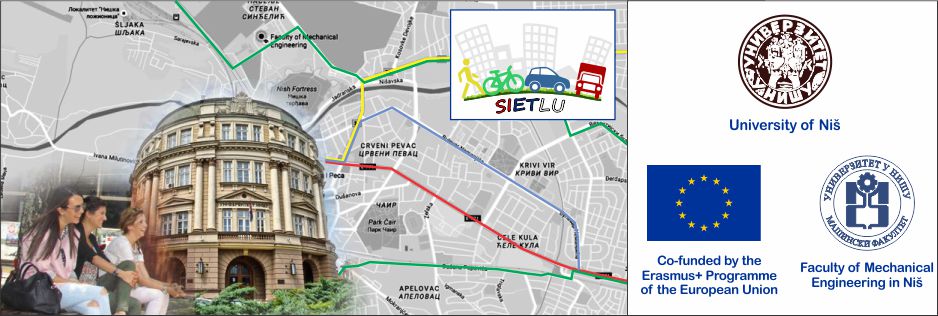| Teaching activity | 11 |
| Title | Alternative fuels in public transportation |
| Prof. in charge | Predrag Milić |
|
Typology |
Training course |
| Description |
The main objective of this training course is to promote clean and energy-efficient road transport vehicles. The main reason is reducing greenhouse gas (GHG) emissions and other pollution. |
| Impact | The main aim of this course is to students acquire knowledge about the plans of reduction of emission of harmful gases and particles of vehicles and to inform with European norms and directives governing this area. By practical work, students will be able to assess the level of contamination of conventional and alternative fuels as well as economic aspects of the alternative fuels usage. |
| Teaching hours | 5 |

 English (UK)
English (UK) Српски-ћирилица
Српски-ћирилица 